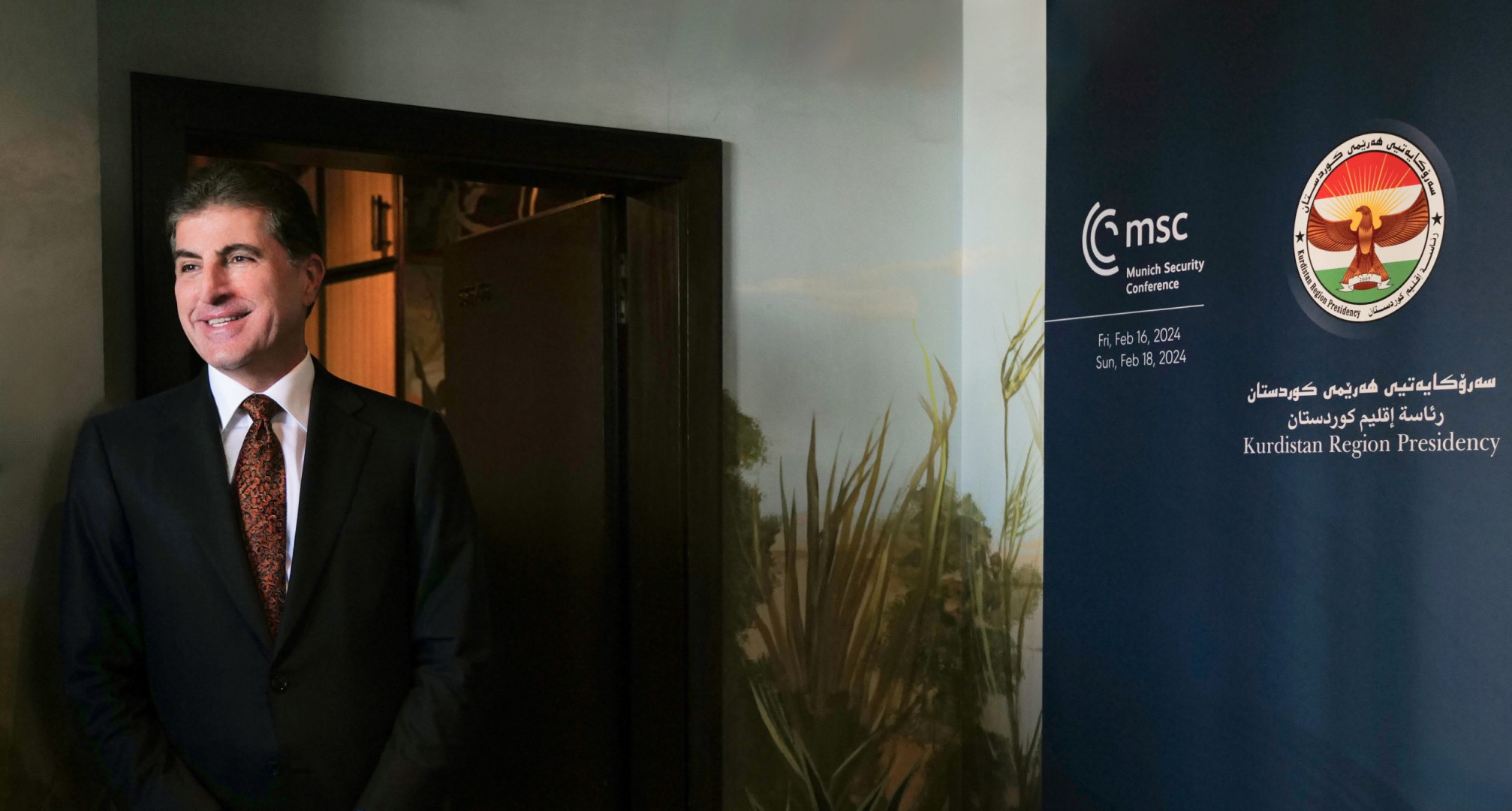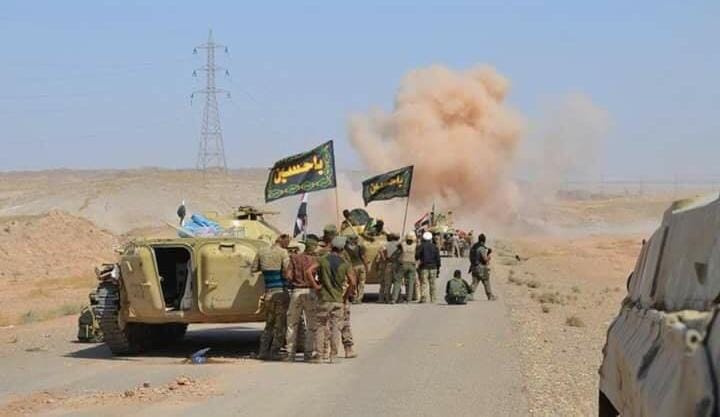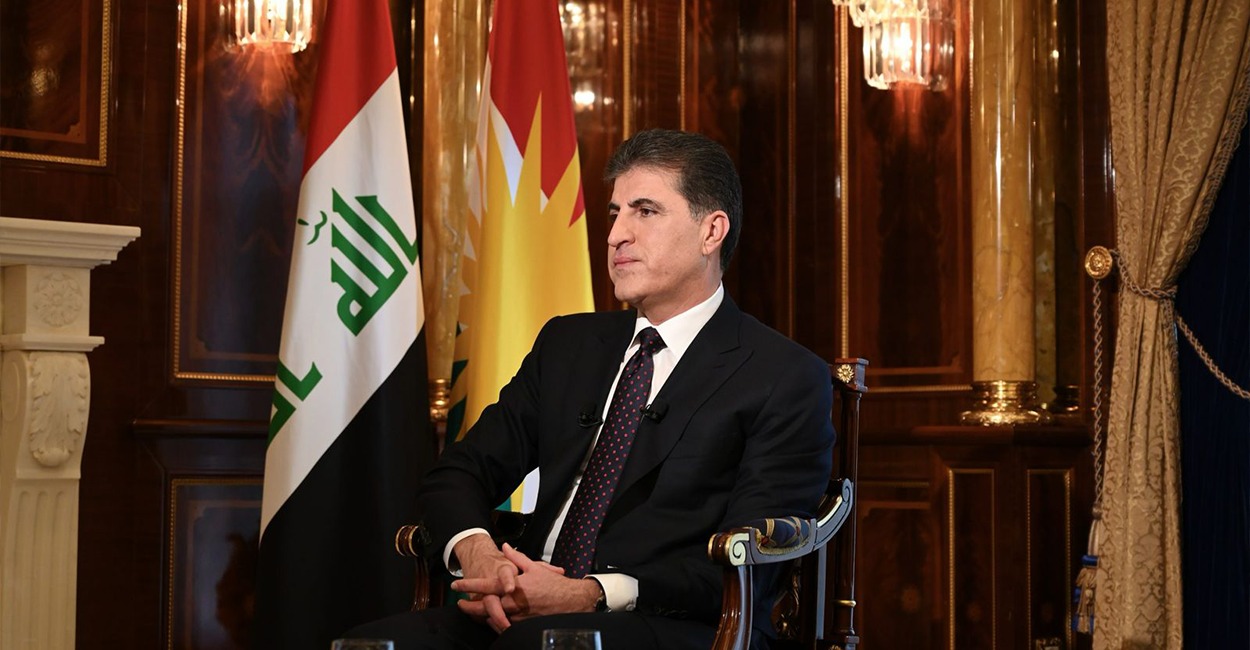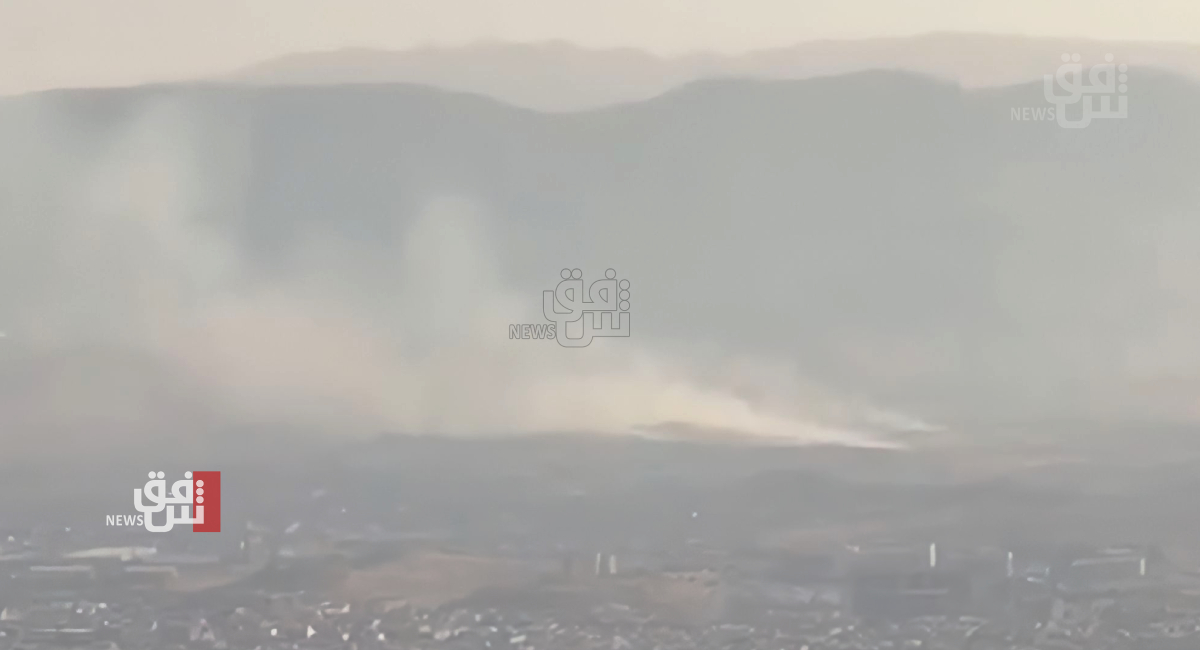Nechirvan Barzani: five years at the helm, steering Kurdistan through storms

Shafaq News/ Leading the Kurdistan Region of Iraq for the past five years, Nechirvan Barzani has demonstrated significant leadership skills and resilience, especially following the long tenure of former leader Masoud Barzani.
Since taking office on June 10, 2019, Nechirvan Barzani has faced numerous challenges. He has guided the Region through turbulent times while ensuring stability and progress. His term has been marked by adept crisis management, strategic diplomacy, and efforts to maintain unity within the Region.
Despite the difficulties, Barzani has managed to sustain the Region's economic and political stability, showcasing his capability to exercise leadership and responsibility.
His vision is "to build a peaceful, progressive, modern and tolerant society deeply inspired by his personal values and beliefs in pluralism in political life, and peaceful coexistence among all the religious and ethnic communities within the Region."
Heavy is the Crown
Leading a region as complex as Kurdistan is no ordinary task. Over the past five years, Nechirvan Barzani has faced and tackled substantial challenges, leaving a significant mark on the Kurdistan Region and its diverse population.
Barzani's leadership journey began long before he assumed the Presidency. His political career took off in 1996 when he was appointed Deputy Prime Minister, followed by his first term as Prime Minister in 1999. His continuous service and achievements over the years have garnered him a reputation of trust and competence, paving the way for his eventual rise to the Presidency.
Observers agree that Nechirvan Barzani's tenure has been challenging. However, his ability to open previously closed doors in relations with Baghdad, neighboring countries, and global leaders has been noteworthy. His political acumen and diplomatic skills have helped build bridges and foster cooperative ties.
Barzani's political career, spanning three decades, is deeply rooted in a rich family legacy. As the grandson of Mullah Mustafa Barzani and the son of prominent Kurdish leader Idris Barzani, Nechirvan Barzani has inherited a legacy of leadership, resilience, and dedication. His familiarity with Iran, where he spent part of his life and learned Persian, has played a crucial role in defusing tensions with Tehran.
His calm demeanor and commitment to protecting his citizens, coupled with his efforts to maintain communication with Baghdad, Tehran, and Ankara, have been pivotal in easing regional tensions.
Launching Critical Communication Lines
After assuming the Presidency, Barzani has faced unparalleled burdens, including the oil suspension, the salary crisis, the security vacuums, and the IDPs and refugees challenge.
In this regard, Barzani needed to mobilize the Region's entire capacity and attract intensive internal and international efforts to address these exceptional humanitarian challenges.
He has managed successive and emerging crises calmly and responsibly, viewing the Region as an interconnected and integral part of both the federal framework of Iraq and the broader regional context, one that both influences and is influenced by its surroundings.
Throughout his tenure, Barzani has frequently visited Baghdad, not merely as a guest but as an embodiment of his vision that Erbil and Baghdad constitute strategic depth for each other.
During these visits, he goes beyond meetings with the presidents, prime ministers, and parliamentarians; the doors of major political forces and parliamentary blocs eagerly open to consult, coordinate, and understand, thereby fostering a conducive atmosphere with the Kurdistan Democratic Party (KDP), the Kurdish Presidency, the government, and the Region as a whole.
In the early days of his Presidency, the Adel Abdul Mahdi government's sudden decision to halt salaries for Kurdistan Region employees, a crisis that still exists, sparked unrest and led to the government's resignation amid October protests. President Barzani swiftly established crucial lines of communication with his successor, Mustafa al-Kadhimi, becoming a frequent visitor to Baghdad to pave the way for resolving the accumulated crises.
His consistent aim has been to bridge the divide with Baghdad, whether regarding the delayed salary crisis, oil export issues from the Region, revenue sharing, or the federal budget crisis. His role has been pivotal in fostering convergence to address the security challenges posed by disputed territories, which provide havens for terrorist cells threatening the security of both the Kurdistan Region and the federal Iraqi government.
In 2014, he fought two battles to rescue the Region from financial crises and salary delays and counter the threat of ISIS, which had occupied vast areas of Iraq and the Kurdistan Region and menacing Erbil.
Barzani led this battle in coordination with Baghdad, Tehran, Ankara, Washington, Paris, and London, culminating in the restoration of security to the Region. His new presidential term in 2019 began in a more positive climate.
Good relations with Baghdad continue with the current Iraqi PM, Mohammed Shia Al-Sudani, who deemed Barzani a "brother."
The frequent visits and serious discussions with the Iraqi officials and the federal government have led to many achievements for the Kurdish people despite the stages of tensions.
Kurdish Unity
In moments of deep-seated disputes among Kurdish factions, Barzani positioned himself as a unifying figure, bridging divides across Erbil, al-Sulaymaniyah, Duhok, and beyond. He engaged in dialogue, weaving threads of understanding and navigating complexities, even during strained relations between the Patriotic Union of Kurdistan (PUK) and the Regional Government. His vision holds steadfast: the Presidency serves as the nurturing home for all Kurds seeking solutions amid turmoil.
The Presidency firmly believes that Kurdish unity translates into collective gains for all parties involved. Conversely, fragmentation or discord invariably leads to setbacks and damage for everyone involved.
Bridging International Relations
It was not long after the 2017 independence referendum that Barzani assumed the Presidency of the Region, continuing his intensive efforts internationally. Leveraging his efficiency and openness in dialogue and negotiation, he contained the internal and regional ramifications of the referendum, including tensions in relations with Ankara and Tehran.
Dilshad Shihab, speaking on behalf of the Kurdistan Region Presidency, succinctly summarized the significance of the Kurdistan Region's role in both the Middle East and Iraq, stating, "The Kurdistan Region is a key player in the balancing acts of the Middle East in general, and in Iraq in particular, which is important for the region's role and entity."
Barzani has been a key player in fostering trilateral cooperation in economic, political, and security matters between Iraq, Turkiye, and the Kurdistan Region.
He spared no effort to prevent the deterioration of relations and ease tensions, making Ankara his first destination during his 2019 foreign visits. He also seized the opportunity to receive congratulations from Turkish President Recep Tayyip Erdogan on his assumption of the Presidency.
Furthermore, his diplomatic finesse has facilitated an understanding between Ankara and Baghdad on how to deal with the challenges posed by the Kurdistan Workers' Party (PKK).
Moreover, President Barzani pledged to boost relations with Iran during his fifth visit to Tehran within 11 years last May, during which he was received by top Iranian officials, including the country's supreme leader, Ayatollah Ali Khamenei.
According to a readout from the Kurdistan Region Presidency, Barzani "underscored the Kurdistan Region's aspiration to strengthen relations with the Islamic Republic of Iran across various sectors."
Even after the IRGC attacks in March 2022 and January 2024 on Erbil, targeting the alleged spy headquarters of Israel, the President of the Kurdistan Region asserted that the Region poses no threat to Iran.
"We are determined to open a new chapter in relations with Iran and develop existing relations in all fields," he said during the visit.
In contrast, while Iran has traditionally maintained strong ties with the Patriotic Union of Kurdistan in Al-Sulaymaniyah, recent developments suggest Tehran's concerted efforts to collaborate with Erbil and engage with the Kurdistan Democratic Party, recognizing Nechirvan Barzani as a key figure for constructive dialogue and potential agreements.
Barzani's leadership has thus been characterized by a steady hand in turbulent times, leveraging his extensive experience and diplomatic skills to navigate the complexities of the Region and ensure its stability and growth.
Barzani's influence extends beyond regional countries; his international presence is widely recognized and acknowledged due to his proactive initiatives and forward-thinking efforts over the years.
According to the Kurdistan Regional Presidency, Barzani has sought to develop and strengthen the political process by adopting a comprehensive consensus-based governance approach. His vision advocates for a peaceful and politically stable democratic homeland, positively impacting peace, stability, and prosperity in Iraq and the broader Middle East.
Paris, known for its proximity and historical ties with the Kurds, witnessed Barzani's official visits four times during President Emmanuel Macron's tenure, highlighting their special rapport.
Even during the challenging tenure of former US President Donald Trump, Barzani managed to arrange a meeting during the Davos conference in 2020, showcasing his ability to navigate complex Iraqi-US relations with a call for dialogue, understanding, and cooperation to shape a future that serves the interests of Baghdad, Erbil, and the Region.
During these visits and countless others, including his participation in welcoming Pope Francis during his visit to Iraq and Kurdistan or attending the World Climate Summit in Dubai, Barzani has been treated as a "head of state." However, his primary focus remains on what this means for the interests of the Kurdistan Region.
Among his notable diplomatic missions that reflect his vision and proactive nature was his active participation at the Munich Security Conference four months ago. This underlined his leadership and diplomatic finesse, contributing to improving the Region's and Iraq's image as a forum for convergence and solutions. Over three days, Barzani held over 20 meetings and discussions with senior officials from the US, UK, France, Vatican City, Turkiye, Qatar, Bahrain, Germany, the United Nations, the European Union, Greece, Austria, Armenia, Estonia, and others, amid global attention dominated by the Gaza conflict and regional concerns.
French radio station "RFI" did not exaggerate when it described Barzani during his recent visit to Paris as the Kurdish leader who has reconnected the Region with the world.
It is well known that during Barzani's years of responsibility, whether in the Presidency now or in the government previously, more than 30 countries have opened representative offices in the Kurdistan Region.




